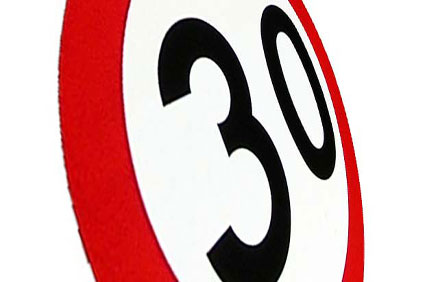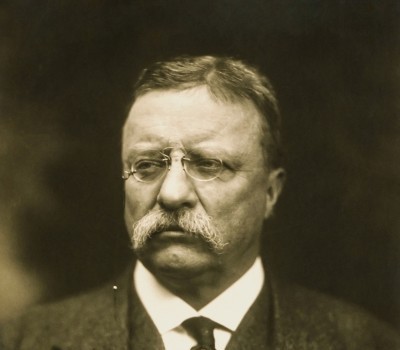Changing Careers in Your 30s and 40s
Post Views 19What do you want to be when you grow up? Almost every child hears that question from an adult at least once during his or her youth. But the same adults who quiz their offspring about career ambitions often ask themselves a similar, more troubling question: What do I want to be now that I am all grown up?
Career soul searching, usually part of a broader re-examination of life, is not uncommon. Many people take stock in their late 20s or early 30s, and most do so, perhaps for the second time, between ages 40 and 45.
There’s a shift in values. What once fit before may not fit any longer … The sad thing is that most [people] feel ashamed about the confusion. How can anybody 30 or 40 years old not know what they want to do?
But if you are among those re-evaluating your career, you need not feel that guilt. Nor should you fret about finding your new way in work life because a few simple exercises and a little research will help you identify the perfect career path for you.
Time For a Self-Quiz
The first thing you should do is to promise that you won’t accept anything less than a fulfilling, adventurous and creative job, the kind you imagined for yourself as a child. Then, while you are in an introspective mood, don’t stop with the question about what you want to be now that you are an adult. Ask yourself an array of probing questions that will help you understand exactly what it is you want–and how you can achieve it. Consider these questions:
- What do I want to be paid to do?
- Do you want to be a manager or a worker?
- Do you prefer a job where you work solo or as part of a team?
- Do you want to be part of the corporate world, work for a small business or take the leap into self-employment?
Look for the perfect match between what you are best at doing and your work.
That’s hard for some people to answer. People want to do everything, or they don’t think they have the experience for their dream job. But ask the question anyway–and answer it.
- What skills do I have?
- Do you have great people skills?
- Are you technically oriented?
- Are you good at selling or providing service, or maybe teaching?
- Are you creative? Someone who could be a writer or designer of Web pages?
People who are pondering a career change should undertake an “analysis-of-life-experience exercise.” Think of the skills you have developed at home, socially, and at work. Think of your education both in and out of the classroom. By the time you finish, you should have a list of 30 or 40 experiences. Rank those according to your priorities, then focus on the top 10 or 12. Those become the nuts and bolts for generating job ideas.
The exercise also can ease the fear of change and fear of failure that keep so many people from exploring new careers–even when they know they want a change. You can make the unknown more familiar by knowing what your skills are. It will be a great confidence builder.
Values, People, and Personality Testing
What values will be components of my next job? You have to do more than gather data and think about your many possibilities; you have to make decisions about what you want to do. That task, says Lore, is much easier when you know for certain a few things you want. And write those commitments to core values down on paper.
Think of the process as puzzle pieces scattered on a table. You cannot make much sense of them until you assemble a few pieces, construct a solid foundation. Then you can start to see pattern sand you can start to put other pieces of the puzzle together.
What do I not want to do? While it is important to start your self-evaluation with a blank slate, without reacting immediately to what you dislike about your current career, eventually you must consider the negative. It’s just as important to know what you don’t want to do. As a matter of fact, it’s much easier to make clear commitments [based on your negative experiences].
Who do you know? Make a list of 50 people you know–friends, golf partners, colleagues, etc. Tell everyone on the list that you are thinking of making a career change and ask them these questions: “What do you see me doing? If you had to pick the ideal job for me, what would it be?”
Some career counselors also recommend personality testing. The Myers-Briggs Type Indicator and the Strong Interest Inventory are designed to help evaluate who you are. Some use other tests like the California Psychological Inventory, the Rokeach Value Survey, and FIRO-B. They all give a piece of information that is career-oriented.
Job seekers should ask certain questions and force themselves to think of answers that may not be on a test. If you do that and then take the standard tests you will often get the same answers. It’s like a light bulb … that [you] must be on the right track.
Define It, Then Find It
Once you narrow your options, write your ideal job description. Then it is time for the job seeker to ask one more probing question: Why don’t I have that job? Nine times out of 10,it’s within you control. It’s a self-imposed obstacle [to job fulfillment].
To overcome the obstacle, a little research may be in order. The Internet is an invaluable tool at that point.
A great resource, is the Occupational Outlook Handbook published annually by the Labor Department’s Bureau of Labor Statistics. It is available on the Internet (http://stats.bls.gov) as well as in most libraries. The Handbook will tell you what skills and education you need to land your dream job, what your days will be like when you do, and the outlook for your new profession, among other things. It will even steer you toward related jobs.
A lot of it is just exploration. You want to explore every idea; you want to explore every option. If it’s not a fit, then you’ll see it right away.
Above all, remember this: The quality of your entire life depends on the degree to which you ‘go for it’ in your career.
Changing Careers in Your 30s and 40s by Harrison Barnes



 Get Paid to Play and Sleep Alongside Pandas as a Full-time Job
Get Paid to Play and Sleep Alongside Pandas as a Full-time Job  How to Ask Your Boss a Touchy Question
How to Ask Your Boss a Touchy Question  Why Many High Achievers Feel Unfulfilled
Why Many High Achievers Feel Unfulfilled  Top 15 Highest Paying Work-From-Home Jobs
Top 15 Highest Paying Work-From-Home Jobs  How Do You Manage Your Time? Use This Method to Succeed
How Do You Manage Your Time? Use This Method to Succeed  7 Steps to Giving a Great Speech
7 Steps to Giving a Great Speech  Top 4 Tips for Starting a Career in Hollywood
Top 4 Tips for Starting a Career in Hollywood  What Does It Mean to Work “Full-Time”?
What Does It Mean to Work “Full-Time”?